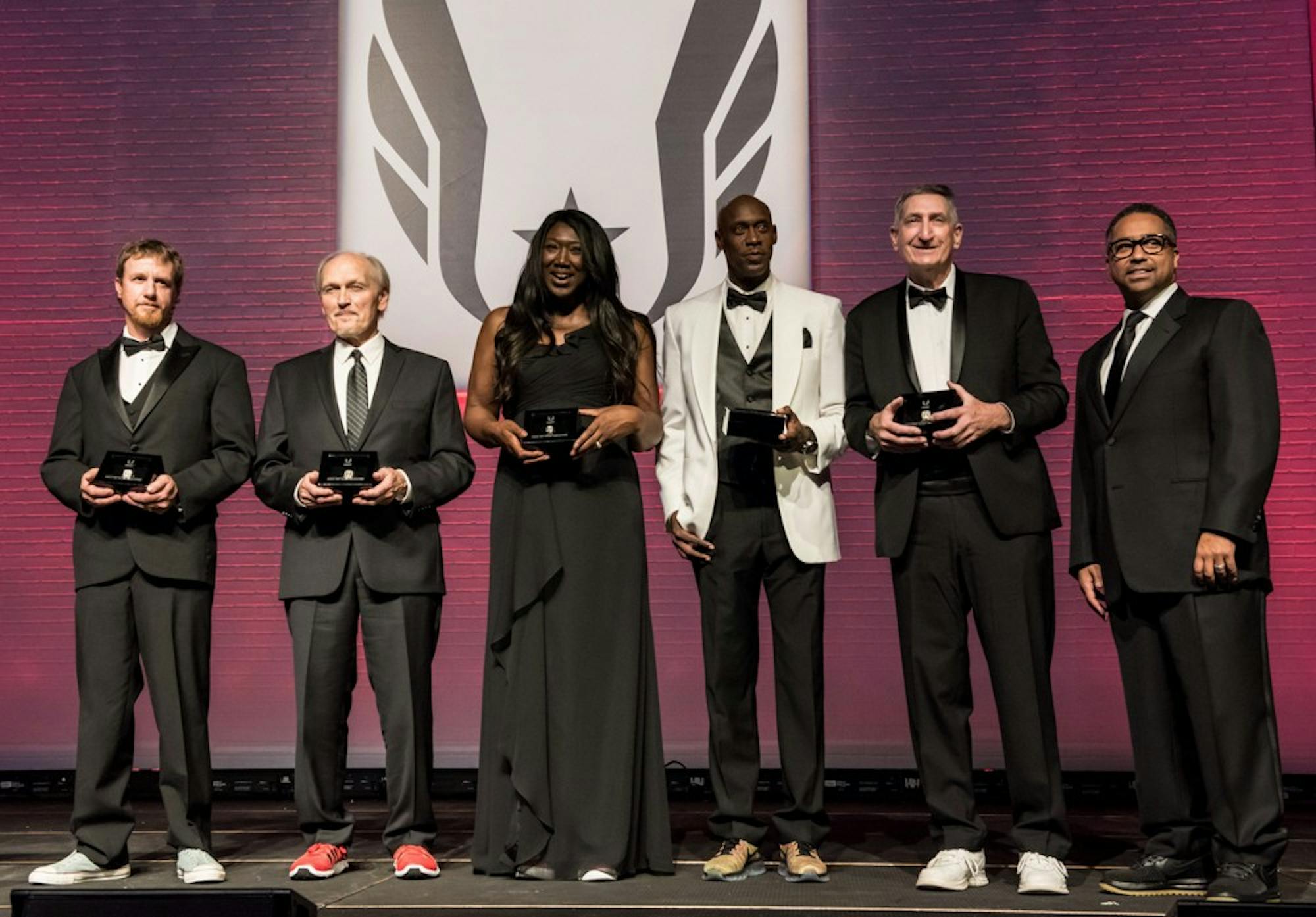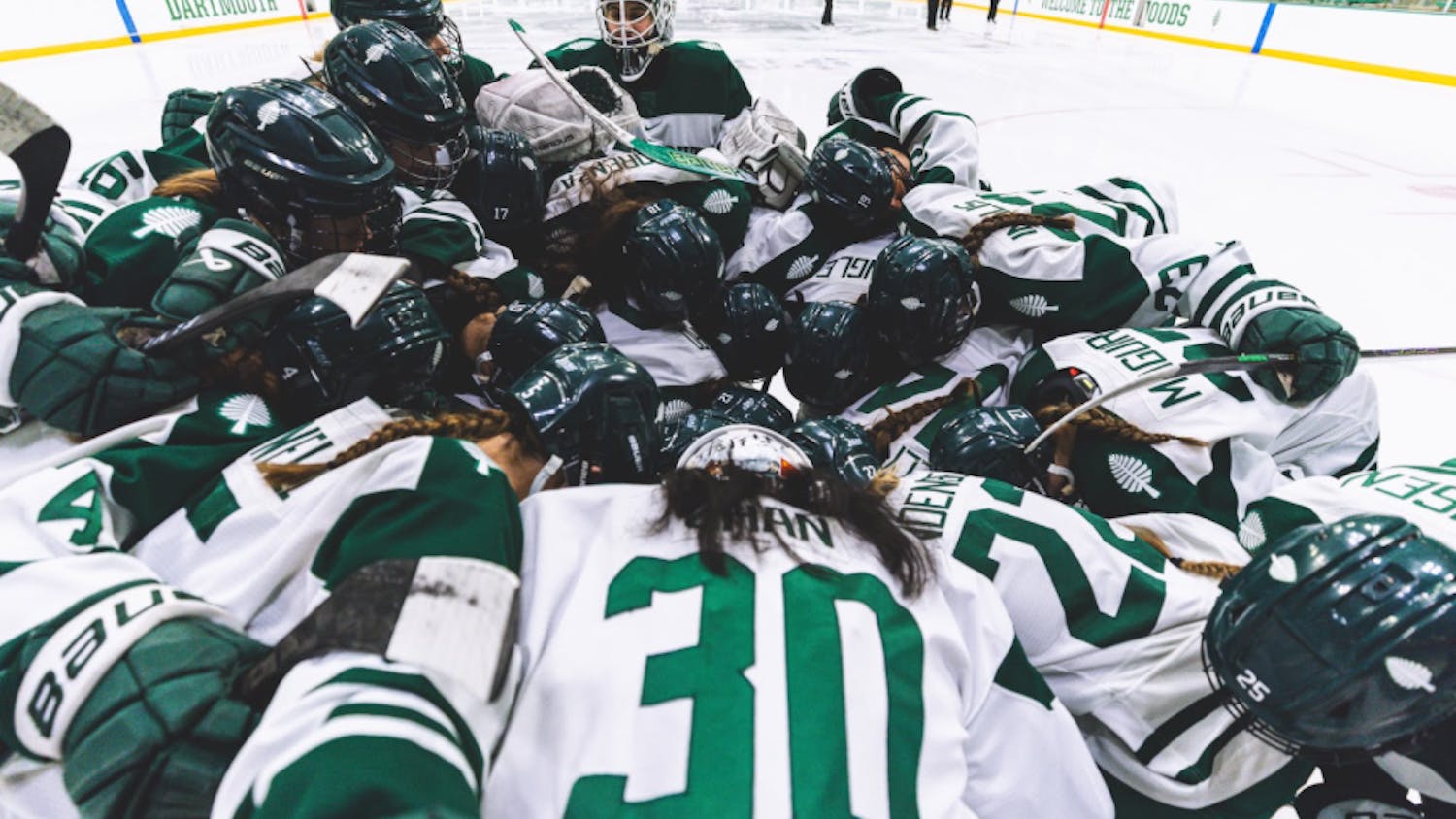Most students and faculty know Frank Zarnowski as an economics professor, but few know that he has been a decathlon expert for nearly 50 years. He has written eight books on the subject and produced more than 900 decathlon newsletters. For his contributions to the decathlon event as a public address announcer, author, Olympic television commentator, coach and meet director, he was elected to the USA Track and Field Hall of Fame in 2016.
What is your first memory of the decathlon?
FZ: I remember seeing the decathlon on television at the 1960 Olympic Games in Rome, Italy. This was an era where there was no satellite communication so ABC televised the Games, taped them and sent them to New York via plane every single day. I remember seeing the last couple of minutes of the decathlon. I thought it was really neat. I didn’t know what it was, but I was excited to see that an American won. The two men that won gold and silver were actually college teammates at the University of California, Los Angeles.
How did you get into public announcing?
FZ: It was by accident. In 1970, the NCAA finally included the decathlon into nationals. Before there was NCAA Division I, II and III there were two divisions. There was a College Division for smaller schools and a University Division for larger schools. They had their championships one week apart. I went to both of them. I noticed that there was no announcer for the decathlon — just a microphone at the press box. I grabbed some heat sheets and decided to tell the crowd what was going on. I did this for two days and people seemed to like it, so they invited me back to each year to do that. This year will be my 48th year announcing the decathlon for the NCAA.
Why is the decathlon so compelling to you?
FZ: Many coaches and meet officials deem the event an illegitimate stepson of the real track and field meet; they like to get the decathlon out of the way before the “real meet” starts. After each event, every athlete needs to rest for 30 minutes before he competes in another event, and many people did not have the time and patience to be an announcer for an event that is drawn out like that. I like the decathlon as an event, and I thought it needed as much promotion as the rest of the track meet. One of my internal goals was to make people understand how important it was and how good the athletes were.
What do you consider the best meet you announced for?
FZ: I would probably say the Olympic Trials in 2012 in Eugene, Oregon. The decathlon was won by Ashton Eaton, and that year he broke the world record. I was the referee for the existing meet record set in 2001 by Roman Šebrle. Eaton had a great meet. He had a chance to break that record, and I had a chance to be a part of the record. I believed my role was to get the crowd engaged to help him break the record. In the final event, he needed to run a huge personal record in the 1500-meter run to get the record. I made sure that all 22,000 people in the stadium understood that and were willing to help. People were screaming, pounding on the boards and leaning over and screaming at him. I thought that was pretty interesting because the energy that filled the stadium allowed him to break the record.
How do you balance being a college professor and a decathlon announcer?
FZ: I tried to make sure that they do not overlap. Up until the time of the Hall of Fame announcement last October, no one in my department had any clue as to my track and field role. I prefer it that way because I only want to be known as an economist that teaches Economics 1 at Dartmouth. I only teach at Dartmouth in the fall. I don’t like to teach in the spring and summer because those are my track seasons.
How do you garner all the history of the event in preparation for the meets you announce?
FZ: The amount of preparation necessary to announce a decathlon or heptathlon is weeks in advance. I put together little books for the meets and they are composed of backgrounds of the athletes, records, schedules and all the possible information that would be useful in announcing the meet. It is a very time-consuming task. I go through the results of every decathlon in the country and analyze the results. I memorize many PRs before I go in so that I can recognize when someone has set a new PR or lifetime best, and I can announce it and share that excitement with spectators.
How do you control your emotions about the sport?
FZ: You try not to be emotional and get attached to certain athletes and give more preference than others. Except in Eugene, if there is an Oregon athlete like Ashton Eaton then they don’t mind that. Sometimes I have to practice commemorating athletes who may be having their last meets, and as an announcer I have to introduce them. I have to tell myself “You will not be emotional; you have to do this in a professional way.” Very soon I am going to have to commemorate Eaton for his career and have to make sure I remain composed. I am going to write it out in a week and half in advance and practice so that I don’t get emotional.
How did you feel about being inducted into the National Track and Field Hall of Fame?
FZ: I was surprised! I had no idea I was on the ballot. I am one of the people who vote for people for the Hall of Fame. There are three votes for current athletes, so I voted in that category and there is a new category every other year called “The Contributor.” My name was one of the five names on the ballot. I voted for myself and said “At least I got one vote for the Hall of Fame.” I didn’t think anything of it after that. Two weeks later, I got a voicemail from USATF asking me to return their call regarding the Hall of Fame ceremony. I though they wanted me to go to North Carolina for the event, and I knew I couldn’t because I was teaching so I called back to tell them only to find out that I won. I was flabbergasted. It was nice to be recognized for all the weekends I spent announcing track results. It was also nice to see other people like myself who help conduct track meets as officials, meet directors, announcers and the like. I think my name was more recognizable because I am always on the infield with a mic but thousands of people help host a great meet. I wanted to accept the award for them as well as myself.
This interview has been edited and condensed for clarity and length.




